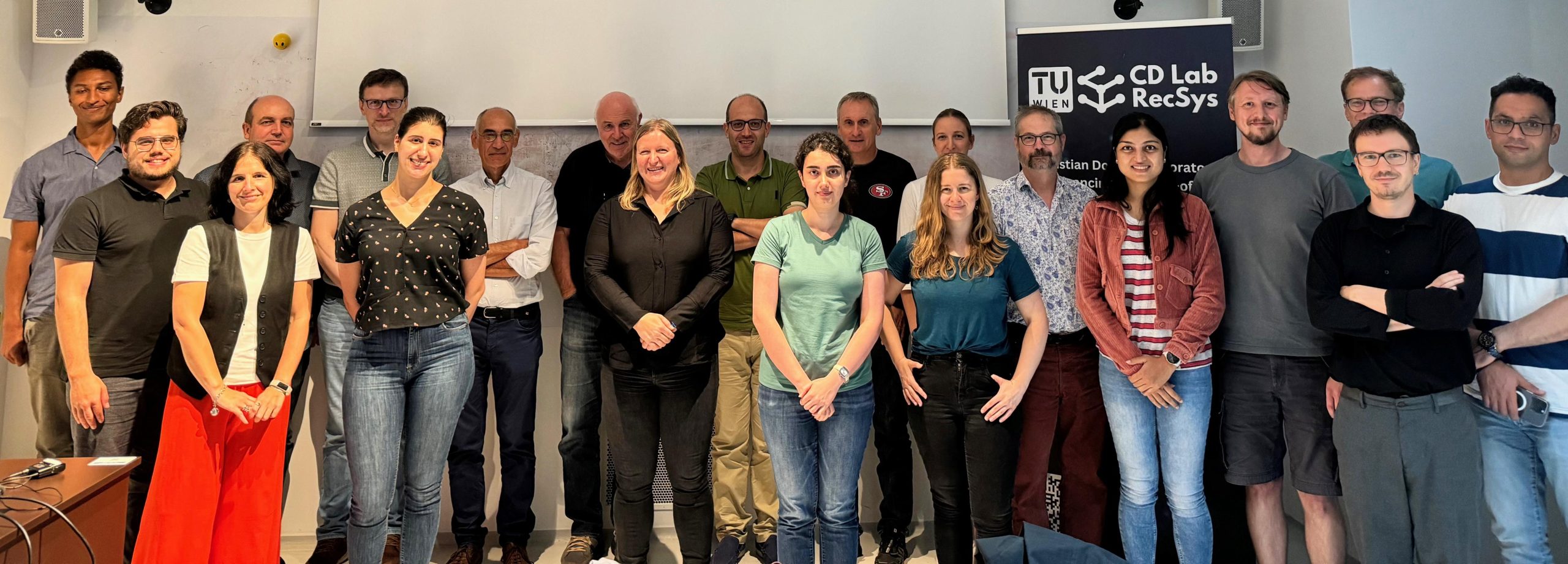The RecSys Workshop held at TU Wien on September 9th and 10th, 2024, brought together leading minds in the field of recommender systems to explore the evolving collaboration between humans and AI. Organized by the Christian Doppler Lab for Recommender Systems, this event aimed to delve into the complexities and opportunities of AI-human collaboration in recommendation technologies.
The workshop kicked off with a series of thought-provoking sessions on “Users and Models.” Sole Pera then delved into “RecSys & Non-Traditional Users: To LLM or Not to LLM?” challenging the audience to consider the impact of LLMs on diverse user groups. Marko Tkalčič followed with a talk on “LLM and Cognitive Models in Recommender Systems,” exploring how cognitive models and digital traces can enhance personalized recommendations. The session wrapped up with Thomas Kolb and Ahmadou Wagne discussing the “Potentials of Combining Local Knowledge and LLMs for Recommender Systems,” emphasizing the importance of integrating local context into large language models for more accurate and relevant recommendations.
The afternoon shifted focus to the dynamics of group interactions and stakeholder engagement in recommendation systems. Francesco Ricci presented “AI fostering Group Collaboration,” highlighting the challenges and future directions for AI-facilitated group decision-making. Robin Burke then discussed “Providers as Collaborators in Recommendation,” advocating for the active involvement of providers in the recommendation process to enhance content quality and relevance. Wolfgang Wörndl closed the day with “Challenges for Responsible Recommender Systems,” addressing principles like fairness, transparency, and diversity, and how these can be incorporated into responsible AI practices. 🌱
Tuesday’s sessions turned toward “Evaluation and Simulation,” a critical area as recommender systems evolve. Dietmar Jannach opened with “Understanding Longitudinal Effects of Recommender Systems,” discussing the importance of long-term evaluation in assessing the true impact of recommendations on both users and businesses. Yashar Deldjoo’s talk, “Is it Time to Rethink the Evaluation of Recommender Systems using Generative Models (Gen-RecSys)?” challenged existing evaluation frameworks and called for a normative approach to fairness and trust in generative models. Pavel Merinov presented “AI for Sustainable Recommender Systems,” focusing on the need for sustainable practices in recommender system design to ensure long-term viability and ethical use.
The workshop was not just about sharing research but also about fostering collaboration and understanding how AI can work alongside humans to create more effective and ethical recommender systems. From evaluating biases and fairness to exploring new methods of group recommendation, the event showcased the vibrant and interdisciplinary nature of this rapidly evolving field. 🌍✨
More information can be found here.

